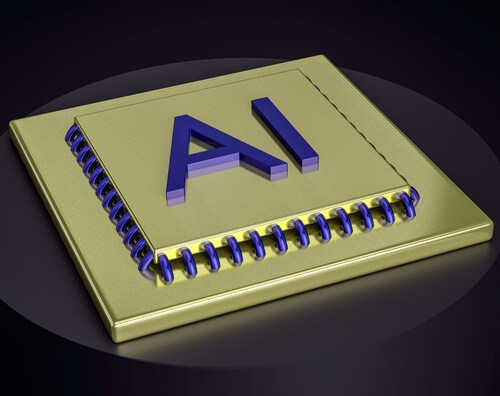
With a shift towards the world of cloud computing, the idea of a cloud mobile phone is becoming apparent with much success. This cutting-edge technology allows the storing and manipulating of data from cloud infrastructure instead of on-site equipment.
Unlike other mobile phones that depend on their hardware and operating system to store and manage data, information, and applications, cloud-based phones can operate with almost basic hardware and data-link capabilities as long as communication is established with the cloud. It also changes the mobile platforms to light and minimalist devices with real-time processing capabilities.
The emergence of 5G, Edge computing, and Artificial Intelligence makes the cloud smartphones revolutionize the mobile experience, bringing along near-perfect performance, infinite storage/ backup, and an integrated experience that works in harmony with other related devices.
In this ever-growing mobile environment, there is potential for the establishment of a more integrated organic environment of Cloud Mobile Phones to run mobile-friendly tests, as this generation of solution, which provides easier and better management of devices, and can provide increased scalability and intelligence.
What Is a Cloud Mobile Phone?
A cloud mobile phone works in a manner where the computing abilities, data, and applications are hosted over the internet. While regular smartphones depend much on their built-in processors and memories, cloud mobile phones rely on a high-speed connection to the internet via the cloud. This has made the devices lighter and more energy-friendly than the former style, since there is no need for powerful processors or large internal storage.
Also, maintaining the data synchronization between platforms guarantees that users access the most up-to-date and integrated application. Security is also boosted since data is stored in the cloud rather than a staff member’s value or company-issued device that can be stolen or fail. Also, since cloud mobile phones reduce the amount of processing required on the mobile device, the cost of the phone is reduced and making the development of advanced m-commerce technology more viable.
Key Benefits of Cloud Mobile Phones
Cloud mobile phones are simply a new technique of innovation in smartphone technology since they use cloud computing technology to enhance both performance and security, and also take advantage of remote access.
Unlimited Storage and Seamless Accessibility
They minimize the hardware constraints, increase performance, and offer a smooth operation through the integration of cloud services. Cloud storage reduces the drawbacks of local storage, which requires users to have large memory space within their systems all the time, as all the data is stored on the cloud to be accessed online when needed. Any type of file format, including photo, video, document, or application, is safely and securely saved and stored in the cloud without any limit.
It also supports instant device setup since all files and settings can be retrieved from the cloud on a different device, a new device, in case of a hardware failure, or in a case where a system has to be reset. Also, there is an opportunity to have the storage in the cloud, which helps to have a real-time copy of the data, which greatly decreases the possibility of its loss, and you are provided with access to the data through any device.
Enhanced Performance and Efficiency
Due to offloading many computing processes to the cloud backend servers, the cloud mobile phones can be kept simple, thus consuming less power and producing less heat. These lead to longer time between charges, and hence, users can use the device for a long time without having to recharge it frequently.
At the same time, the volumetric processing of multi-threading tasks in the cloud lets produce rather simple chips, which do not require powerful trillion-core processors, thus providing high-performing mobile experiences at a low cost. Customers can transition to streaming applications in a very convenient and flexible manner, ensuring that there is no need to continuously update or install the software on this device.
Stronger Security and Data Protection
Storing the data in the secure cloud provides a solution to this, since in case of loss of the device, theft, or an attack, data will not be lost. Cloud providers integrate real-time, efficient, and effective encryption, authentication processes to protect the databases. Additional security regarding the multiple forms of login and the usage of biometric measurements makes it challenging for unauthorized personnel to gain access to the information. In addition, cloud-based management of the data facilitates the remote wiping of the data, which is handy in case of theft of the device.
Cost-Effectiveness and Sustainability
Cloud-based phones can decrease manufacturing costs by not having to implement the use of high-end processors as well as memory. They are cheaper, making them easily accessible to the market and at the same time encouraging the reuse of electrical gadgets rather than creating more waste. The mobility of computing to the cloud will enable manufacturers of these devices to develop power-efficient smartphones that are also durable and have a longer life span than their hardware. Also, cloud computing is cost-effective as it provides efficient resource management in an efficient way, reducing overall emissions of digital data processing.
AI-Powered Smart Services
The integration of AI within the cloud can also bring additional benefits to the end-users, such as recommending services, voice recognition assistants, and real-time translators. These are smart features that can operate in a cloud environment, and Table 2 demonstrates how they will improve the speed of processing. AI-based automation in smartphones can be applied to functions as advanced word prediction and auto-correction, intelligent camera settings, and a smart notification system. Moreover, cloud-based AI can work with big sets of data in real-time, and also can easily interact with smart home gadgets, voice assistants, or business applications.
Challenges and Considerations
Cloud mobile phones have many advantages, but their use is expected to have some difficulties that need to be considered for larger use. These include dependence on the internet, high latency, and data privacy that act as challenges to consumers as well as enterprises.
Dependency on High-Speed Internet: The major weakness that is associated with cloud mobile phones is that their efficiency and effectiveness depend heavily on the availability of a stable and fast internet connection. The absence of 5G or an efficient network in this case reduces the performance rate, thereby presenting a negative impact on the user experience. This can also be demanding in the rural areas where the improvement of high-speed Internet connection is still underway. In order not to disrupt the use of cloud services by their subscribers, telecom providers and cloud service providers shall consider the urgency of developing the availability of networks worldwide and the internet connectivity.
Latency Issues: While cloud processing is incredibly effective, there are issues of delay now and then when the program is run, such as in the case of games, video conferencing, and the like. However, the time that elapses when using the internet to access cloud servers and devices also affects the performance. This problem can be somewhat alleviated by edge computing as well as other superior caching techniques, which perform calculations closer to the user end, thereby lessening the amount of time the system will take to respond. Also, there is a need to scale the cloud for deep learning for real-time services, which will improve the user experience.
Privacy Concerns: Making data centrally stored in the cloud has brought the issues of privacy and data sovereignty. Customers should therefore ensure that their service providers can meet requirements such as GDPR or CCPA on data protection. Data storage on remote servers entails higher chances of unauthorized access or cyber attacks, breach of data, and intrusive government surveillance.
LambdaTest and Cloud Mobile Testing
LambdaTest is an AI-native test execution platform designed specifically for website testing, aimed at making the process hassle-free and effective across multiple devices. This will be very helpful to the developers to test their websites to the fullest and provide a user-friendly site for all the browsers and devices out there. LambdaTest is another innovative digital platform that uses artificial intelligence in the handling of test orchestration and execution.
It enables the developers and the QA specialists to automate tests that they can perform on over 3000 environments and real user scenarios. Cloud testing greatly benefits from the help of the LambdaTest tool, which empowers developers and testers to ensure the effectiveness of the tested cloud mobile phones in different real-life scenarios. There is no need for physical labs for the devices as LambdaTest offers compatibility with a variety of Mobile devices and OS based on the cloud platform.
Automated and Manual Testing
LambdaTest also offers automation and manual testing simultaneously, which will help developers find the problem at the initial stage of the development process. This approach is very proactive in the development of cloud mobile phones to avoid the common faults and slow performance of gadgets.
AI-Driven Test Analytics
AI integration helps in speeding up the process of testing by analyzing the results of the test, with added features that can predict any failures. This saves the time that could otherwise be used in testing required changes and refines cloud mobile phone applications before being used by the end users.
Seamless CI/CD Integration
LambdaTest can integrate with different CI/CD pipelines, which makes it easier to test, deploy cloud-based mobile applications quickly. This optimizes the time-to-market, thus allowing businesses to deploy new features and bring updates to the market swiftly.
Conclusions:
For cloud mobile phones, the future is bright as it presents a shift of direction from the mainstream hardware-centered mobile phones that are commonly referred to as smartphones. These devices take advantage of cloud computing technology to offer virtually unlimited storage space, as well as improved processing power, as well as better security solutions. Also, they help increase sustainability by minimizing electronic waste and minimizing energy utilization through the proper utilization of resources.
However, it’s important to recognize certain challenges—such as dependence on internet connectivity, latency issues, and privacy concerns—which must be considered before cloud-based mobile testing gains broader acceptance. Despite these hurdles, the future looks promising.
Building on the foundation of Selenium mobile testing, modern cloud platforms like LambdaTest now offer expanded support for mobile automation using Appium, which extends Selenium’s WebDriver protocol to mobile environments. This evolution is transforming how testing is approached across devices.


